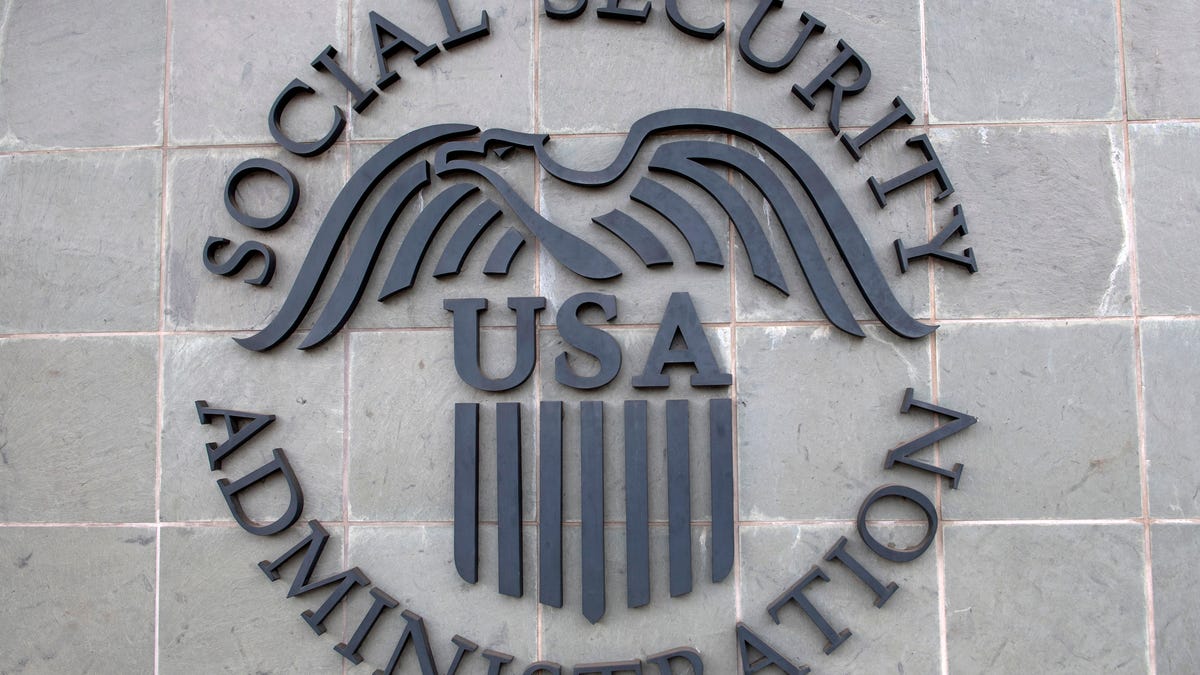
How the government shutdown is affecting Social Security
This is what to know about Social Security payments during the ongoing government shutdown.
Three-quarters of American workers fear that promised Social Security benefits won’t be there when they retire, a new survey finds.
Generations of workers have fretted about the future of Social Security, the retirement trust fund. Lately, though, unease seems to be rising.
A new Bankrate survey, released Oct. 22, found that 76% of workers and 80% of retirees are concerned that the benefits won’t be paid. A year ago, 73% of workers and 71% of retirees voiced the same fears.
There’s plenty reason for concern. Projections show Social Security faces a shortfall by 2034. At that point, the federal program’s cash reserve will be depleted, and the agency will have enough funds to pay roughly 81% of full retirement benefits, according to an analysis by AARP.
That looming deadline provides a rising arc of dramatic tension for workers and retirees, who can chart its approach on their calendars.
“The funding issues have been more quantifiably threatening in recent years,” said Mark Hamrick, senior economic analyst and Washington bureau chief at Bankrate.
Is the public losing faith in Social Security?
The Trump administration may be stoking fears. Through much of 2025, the Social Security Administration has been in upheaval, enduring highly publicized staff cuts, policy shifts and leadership changes.
Trump has seeded doubt in the agency’s integrity, alleging “shocking levels of incompetence and probable fraud” in a speech to Congress in March. Some congressional critics allege the president is plotting to privatize Social Security.
Together, the insolvency countdown and agency tumult have shaken public faith. In an AARP survey, published in July, only 36% of Americans expressed confidence in Social Security’s future, down from 43% in 2020.
Fear has driven some people to claim Social Security early, on the theory that they can enjoy their benefit checks for as long as they last.
In another recent AARP survey, roughly one-quarter of Americans ages 62 to 66 said they had made a decision within the past year to claim Social Security early, or expected to do so.
Americans are claiming Social Security early
At a recent internal meeting, a Social Security administrator noted that new benefit claims were up more than 15% in March, compared with the same month in 2024.
Total Social Security retirement benefit claimants rose by 1.7 million in the first eight months of 2025. That’s a bigger jump than in all of 2024, according to Financial Advisor Magazine.
The rise is partly due to fears about a Social Security shortfall, and partly the result of a new law that increases benefits for public workers.
For many retirees, claiming Social Security early is a mistake. You can claim as early as 62, but your monthly check gets bigger every year you wait, maxing out at 70.
Based on average human longevity, economists say, most people are better off waiting.
Americans depend on Social Security to fund their retirement. In the Bankrate survey, which reached 2,466 adults, 52% of workers said they expected to rely on the benefits in retirement, and 78% of retirees said they rely on it now.
Reliance on Social Security seems to be rising. AARP research shows that 65% of retirees now rely “substantially” on Social Security, up from 51% in 2005.
Will Congress step in to fix Social Security?
To “fix” Social Security, Congress would have to find a way to make the program solvent. Policymakers could collect more Social Security taxes. They could raise the “full” retirement age for Social Security, making retirees wait longer to reap larger checks. They could also borrow the funds.
Would Congress really allow Social Security to go insolvent? Much like the general public, experts are divided on that question.
“I think that Congress will definitely do something to avoid reducing benefits,” said Emily Ekins, vice president and director of polling at the libertarian Cato Institute, speaking to USA TODAY in August. “I don’t think they’re just going to allow a quarter in benefits to be cut.”
Hamrick, of Bankrate, is more skeptical.
“There certainly hasn’t been anything to shore up confidence to think they’ll be attentive to resolving this easily resolvable problem,” he said.
In any case, Hamrick said, “the current path is a precarious one.”

